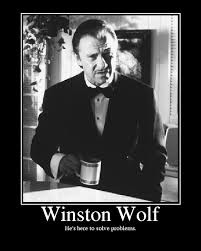Showtime’s Ray Donovan, created by Ann Biderman, burst onto screens with a pilot episode that not only set viewership records but also introduced a complex world of Hollywood fixers and family drama. Directed by Allen Coulter and penned by Biderman, “The Bag or the Bat” immediately throws viewers into the deep end, showcasing a protagonist wrestling with professional demands and deeply rooted personal issues. This Ray Donovan episode guide delves into the pilot, dissecting its key moments, character introductions, and the sprawling narrative threads it sets in motion.
Ray Donovan (Liev Schreiber) is not your typical Hollywood resident. Transplanted from South Boston, he operates in the shadows, cleaning up messes for the city’s elite. Think of him as a modern-day Winston Wolf, but with a distinctly East Coast edge and a family life that’s as complicated as his client list. Living with his wife Abby (Paula Malcolmson), daughter Bridget, and son Conor, Ray navigates the superficiality of Los Angeles while grappling with the ghosts of his past and the very real problems of his present. The pilot episode, “The Bag or the Bat,” wastes no time in establishing this duality, presenting Ray as both a highly competent professional and a man teetering on the brink of personal chaos.
One of the most striking aspects of the pilot is the sheer volume of information and character introductions packed into a single episode. From Ray’s professional life, dealing with cheating celebrities and stalkers, to his tumultuous family dynamics, the episode is a whirlwind. We are immediately introduced to Ray’s brothers: Terry (Eddie Marsan), suffering from Parkinson’s, and Bunchy (Dash Mihok), grappling with the trauma of childhood abuse. And then there’s Mickey Donovan (Jon Voight), Ray’s father, whose release from prison ignites a powder keg of unresolved family tensions and sets the overarching narrative in motion.
 Harvey Keitel as Winston Wolf in Pulp Fiction, a character similar to Ray Donovan in his role as a Hollywood fixer.
Harvey Keitel as Winston Wolf in Pulp Fiction, a character similar to Ray Donovan in his role as a Hollywood fixer.
The pilot episode meticulously lays out numerous plot threads that promise to unravel throughout the season. Mickey’s arrival in Los Angeles is not a heartwarming family reunion; it’s a disruptive force that threatens to expose long-buried secrets and destabilize Ray’s carefully constructed life. His first act upon release – murdering a priest – is a shocking declaration that sets a dark tone for the series and reveals the deep-seated trauma within the Donovan family. This priest, we learn, was responsible for the childhood abuse of Bunchy, adding another layer of complexity to the family’s already strained relationships.
Beyond Mickey’s explosive return, the pilot introduces other significant storylines. Bunchy’s $1.4 million settlement and ongoing struggles with alcohol and emotional distress hint at a long road to recovery. Terry’s Parkinson’s disease adds another layer of familial burden and personal struggle. The revelation of Ray’s half-brother, Darryl (Pooch Hall), further expands the Donovan family tree and introduces potential new alliances and conflicts. Even Ray’s deceased sister, Bridget, whose tragic story of drug-related suicide is revealed to his daughter, Bridget, in this episode, casts a long shadow over Ray’s psyche and explains his empathy for troubled women.
Ray’s professional cases in “The Bag or the Bat” are equally revealing. His handling of the athlete with a dead hooker and the actor caught with a transvestite prostitute showcases his fixer skills and the morally ambiguous world he inhabits. These cases are not just episodic plot devices; they offer glimpses into the underbelly of Hollywood and the types of problems Ray is paid to solve. The introduction of characters like Avi (Steven Bauer), Ray’s Russian assistant, and Lee Drexler (Peter Jacobson), Ray’s connection to the Hollywood elite, further enriches the show’s supporting cast and the intricate web of relationships Ray navigates.
The storyline involving Stu Feldman (Josh Pais) and Ashley (Ambyr Childers) adds a layer of personal entanglement to Ray’s professional life. Hired to spy on Ashley, Ray’s past relationship with her resurfaces, leading to passionate encounters and further complications. Ashley’s epilepsy and stalker situation add to her vulnerability and Ray’s protective instincts. The “bag or the bat” ultimatum given to Ashley’s stalker becomes the episode’s namesake and a brutal demonstration of Ray’s methods. Feldman’s petty power play, attempting to leverage Ray’s daughter’s school admission, and Ray’s violent response, breaking Feldman’s arm, highlight Ray’s impulsive nature and the lengths he will go to protect his family and his interests.
Finally, the pilot hints at deeper psychological issues within Ray himself. His visions – a green-screened image of his brother and the talking Marilyn Monroe picture – suggest substance abuse or unresolved trauma. These surreal moments add an intriguing layer to Ray’s character, hinting at vulnerabilities beneath his tough exterior and suggesting potential future storylines exploring his mental state. Ezra (Elliott Gould), Ray’s mentor and the man who brought him to LA, is also depicted as being on the verge of a breakdown, further emphasizing the theme of hidden turmoil beneath the surface of success.
“The Bag or the Bat” is undeniably packed, perhaps even overstuffed, with characters and plotlines. However, this density is arguably its strength. It creates a rich and complex world from the outset, leaving viewers eager to see how these disparate threads will weave together. While the sheer volume of information could be overwhelming, the pilot manages to remain coherent and engaging, largely due to strong performances and compelling character dynamics. Ray Donovan’s pilot episode successfully lays the groundwork for a potentially captivating series, promising a blend of crime drama, family saga, and character study set against the backdrop of Hollywood’s glittering facade and dark underbelly. This episode guide serves as a starting point for viewers diving into the world of Ray Donovan, offering a roadmap to navigate the pilot’s many layers and prepare for the season ahead.